
There is nothing quite as stressful as checking your live store only to discover that your WooCommerce shop page isn’t showing any products.
We have seen many store owners dealing with this specific issue, and we know that every minute your inventory is invisible is potential revenue lost.
So, are you looking for how to fix WooCommerce shop page not showing products?
Solving this problem is crucial since the WooCommerce Shop page plays a huge role in every online store.
In this article, we’ll talk about the 4 most common reasons that can cause issues with displaying WooCommerce products on your shop page and figure out how to fix them.
As this is a comprehensive tutorial, here is a table of contents that you can use to navigate through it:
- Why WooCommerce Shop Page Does Not Show Products
- How to Fix WooCommerce Shop Page Not Showing Products
- How to Fix WooCommerce Not Showing Products in Search Results
Let’s dive into it!
Why WooCommerce Shop Page Does Not Show Products
Let’s look at the most popular reasons why your WooCommerce Shop page may not show any products.
1. Custom Shop Page
Have you recently installed a new WooCommerce theme?
There is a good chance that this is the reason you no longer see products on the Shop page.
The thing is, your new theme may use a custom Shop page.
If so, you need to set it as the default one in WooCommerce settings so that your products start displaying on it.
2. Plugin Conflict
Another popular reason the WooCommerce Shop page doesn’t display products is a plugin conflict.
Not all WordPress plugins are compatible with each other. Sometimes when you install a new plugin, it may cause a conflict with other plugins installed on your site.
This is especially true for plugins that their developers haven’t updated in a long time.
So if you’ve installed a plugin that, for some reason, isn’t compatible with WooCommerce, it may cause your Shop page not to display products.
3. Products are Hidden from Display on the Shop Page
WooCommerce allows you to specify which products you want to display in the search results on your site and on your Shop page.
If that option is not configured correctly, then it could be another reason why there are no WooCommerce products on your Shop page
You might have to check if the wrong option is selected and is causing the product to be hidden.
4. Permalinks Issue
If you see a product on its page, but it doesn’t appear on your Shop page, chances are that the problem lies in permalinks.
Permalinks in WordPress stands for permanent links. This setting defines how your internal URLs appear.
If you recently installed any WooCommerce extensions on your site, this may have thrown off your permalinks settings.
Now, let’s look at how you can quickly fix each of these issues.
How to Fix WooCommerce Shop Page Not Showing Products
After you’ve learned what can cause problems with your WooCommerce Shop page, let’s see how you can fix them.
Check if You Choose the Right Shop Page
One of the most common reasons products don’t appear on the Shop page is that you’ve chosen a custom page in your WooCommerce settings.
To check if this is the case, navigate to WooCommerce » Settings in your WordPress dashboard.
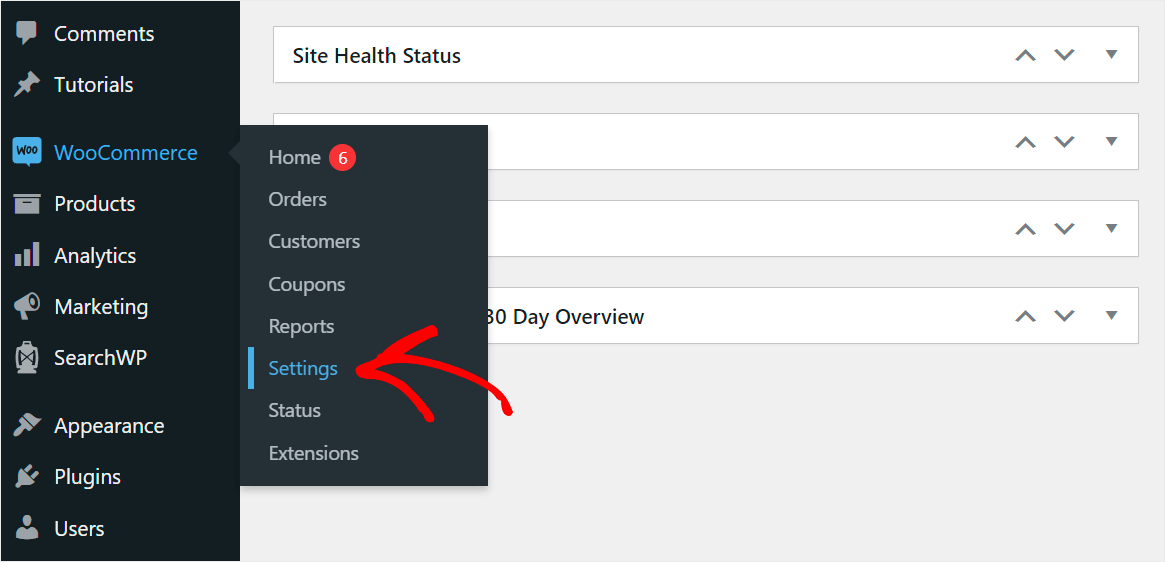
From here, you can head to the Products tab.
Once there, find the Shop page option and make sure the correct page is selected.
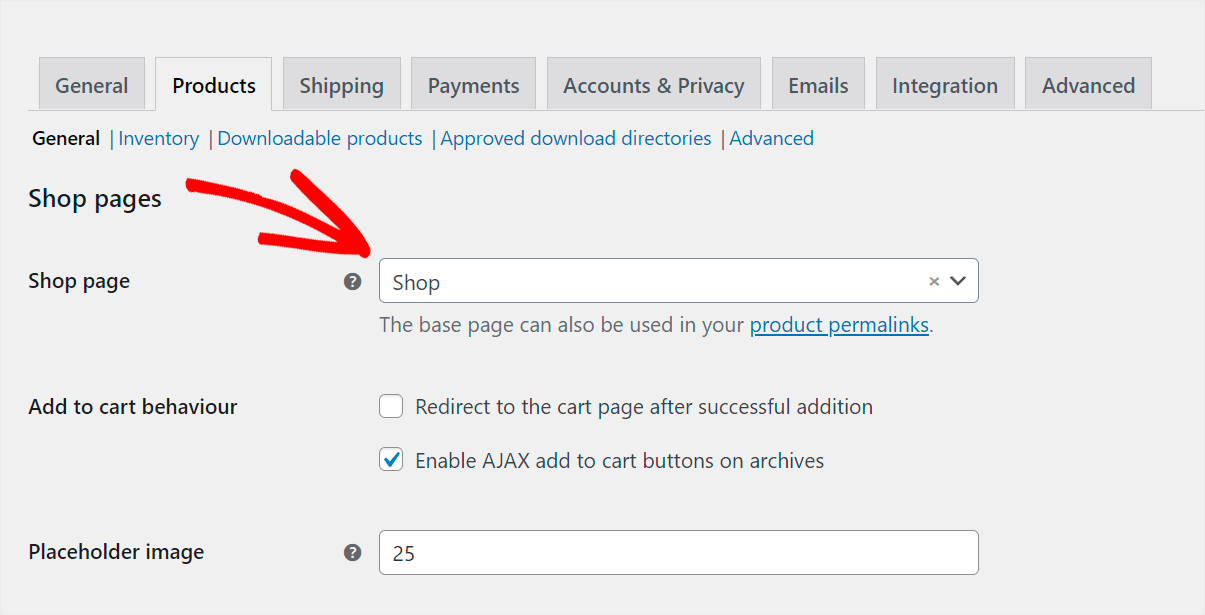
If some other page is selected as your Shop page, click on the Shop page dropdown menu and select the correct page.
Once you’re done, don’t forget to save your changes.
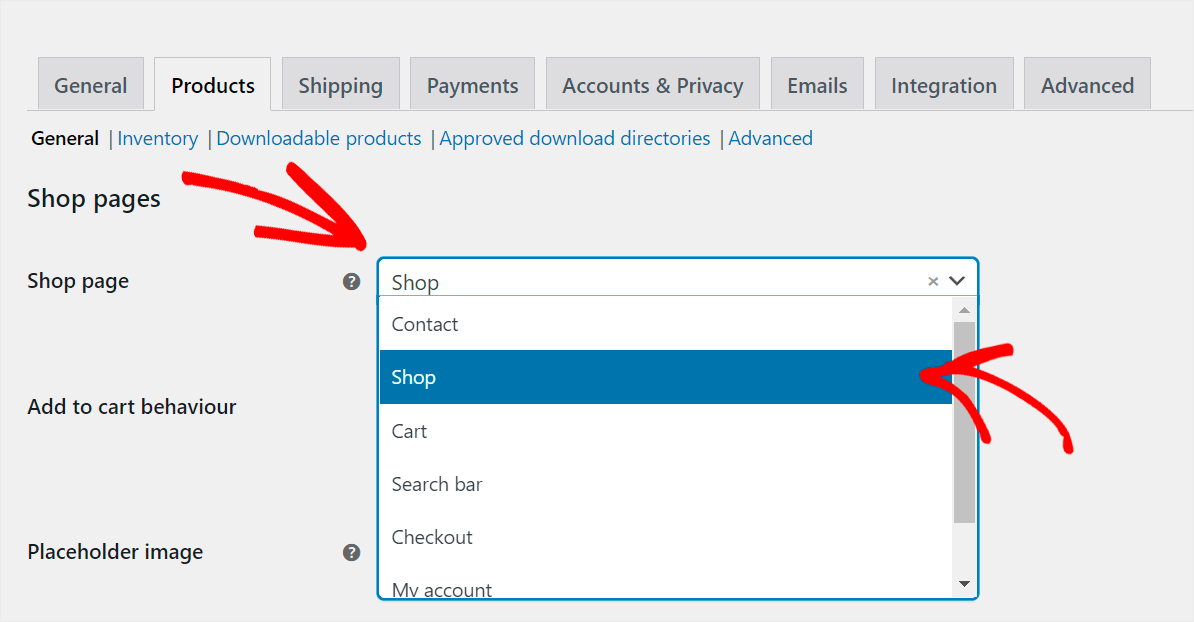
Check if There is a Plugin Incompatibility on Your Site
To check if there is a plugin conflict on your site, you need to deactivate all plugins except WooCommerce and then turn them back one by one.
To get started, go to the Plugins tab in your WordPress dashboard.
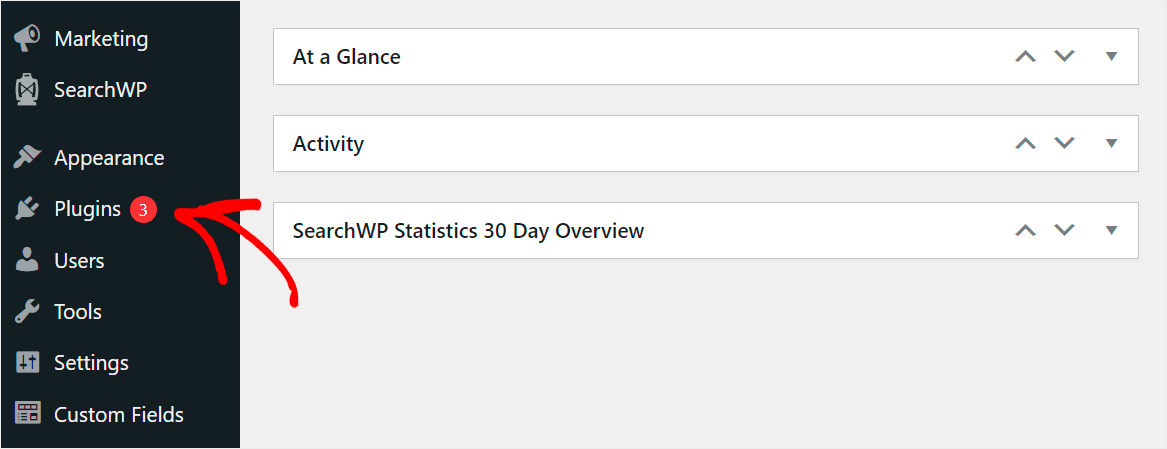
Next, you can tick the top left checkbox to select all plugins at once.
After that, just ensure that you uncheck the box next to the WooCommerce plugin.
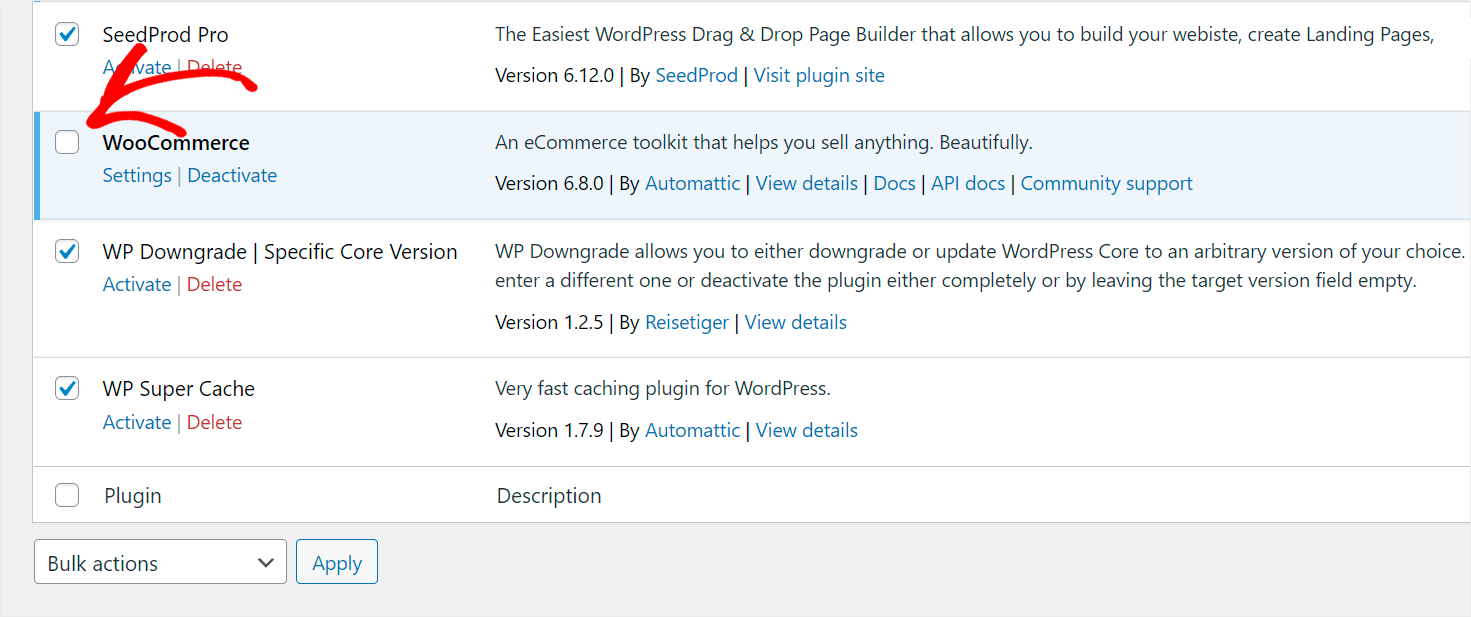
Finally, click on the Bulk actions dropdown menu and select the Deactivate option to deactivate all plugins installed on your site except WooCommerce.
From here, simply click the ‘Apply’ button.
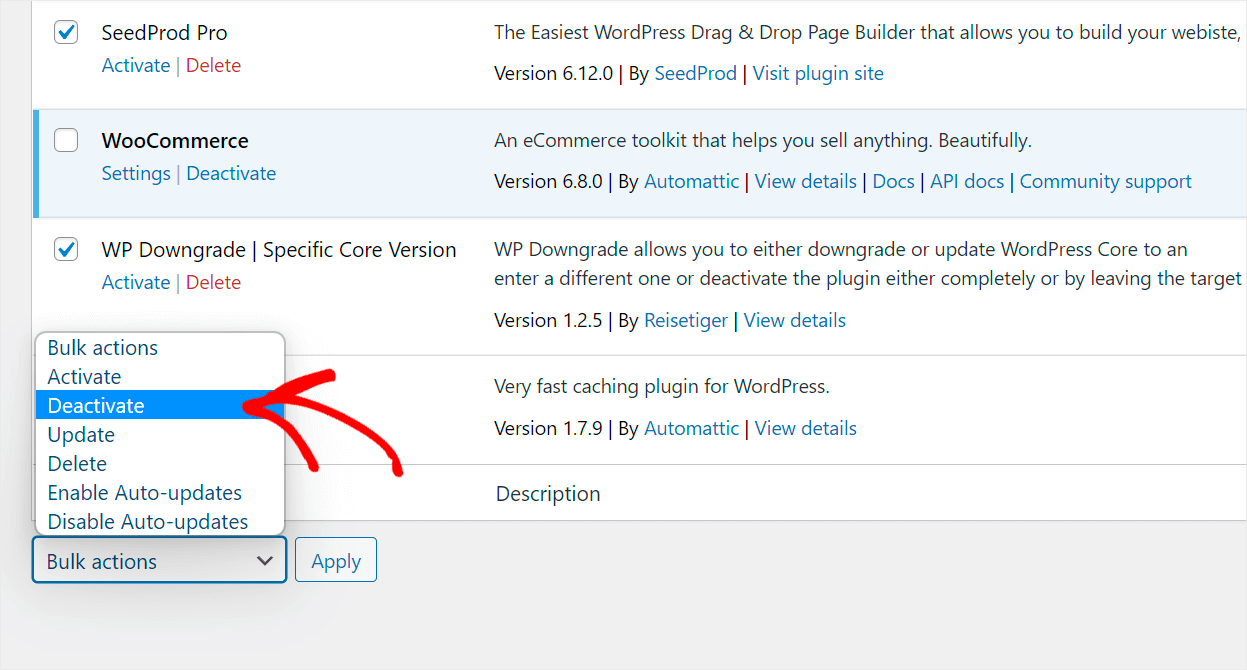
The next step is to gradually activate each plugin until you find the one causing the problem with the WooCommerce Shop page.
If you find such a plugin, consider not using it anymore to avoid problems with displaying products.
Check the Visibility of Your Catalog
Another reason why your products may not show up on the Shop page is that you’ve changed their visibility.
To check that out, first, navigate to the Products tab in your WordPress dashboard.
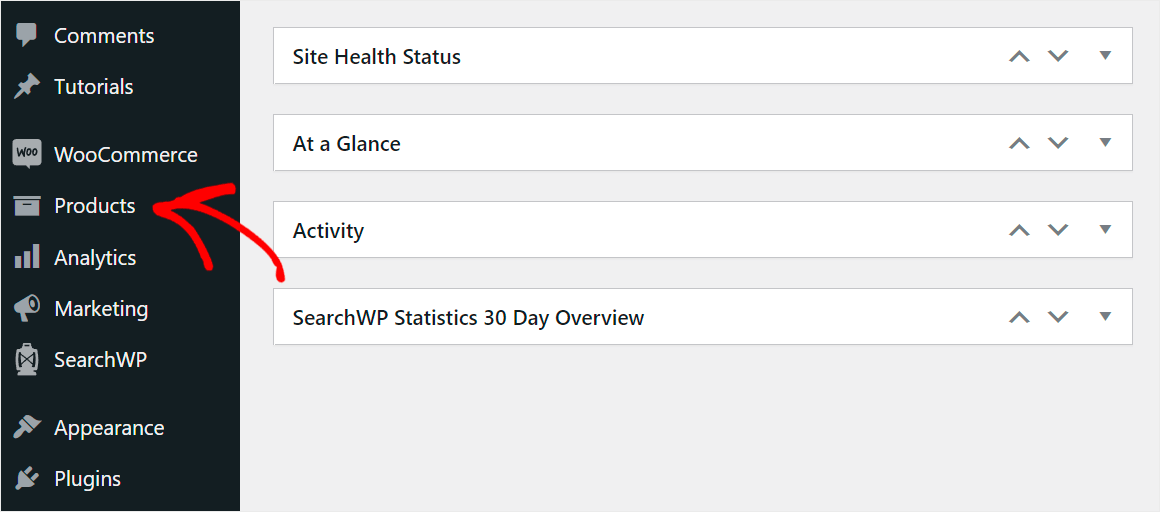
Then, click on the product whose visibility you want to check.
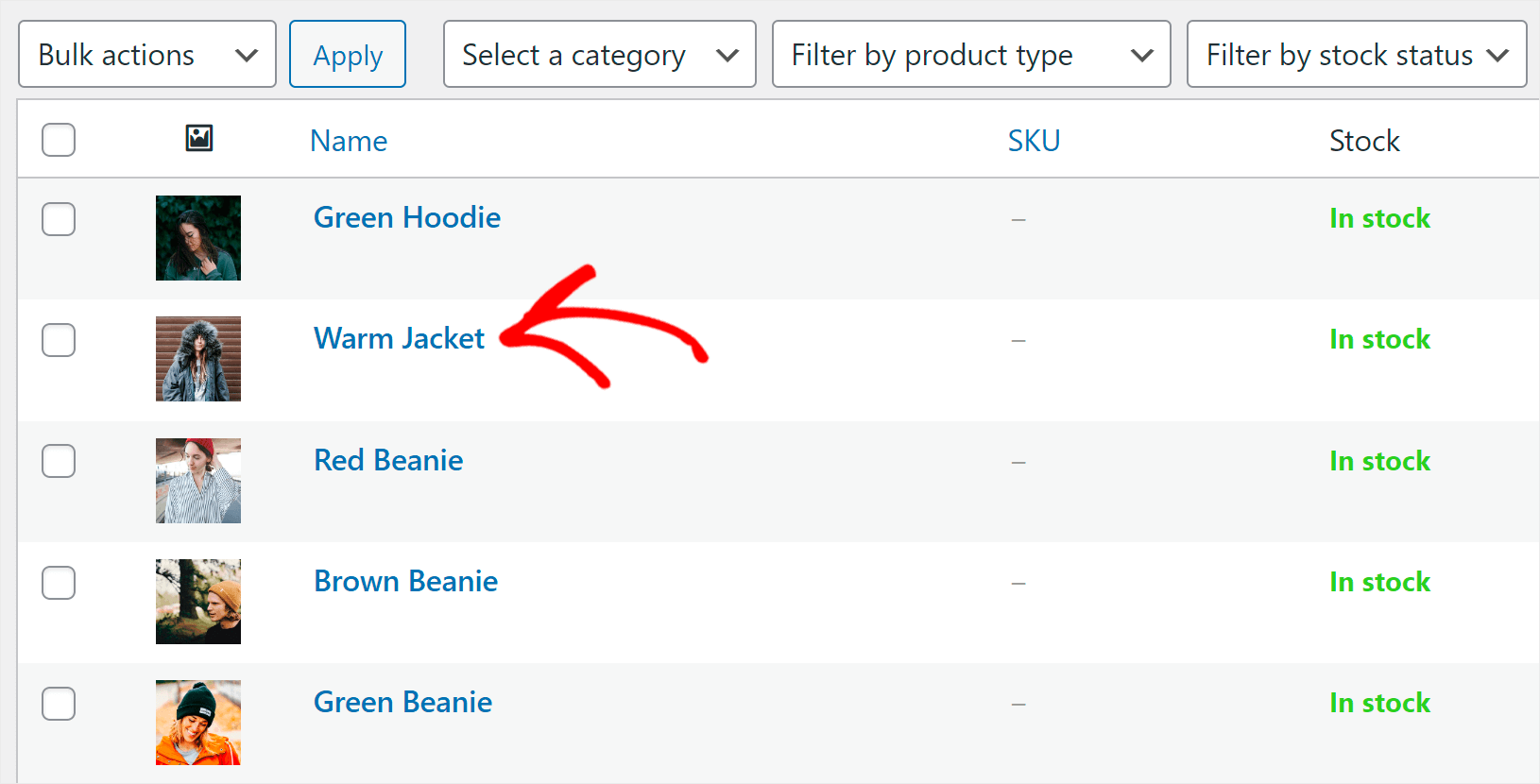
Once you’re in the product editor, make sure that the product catalog visibility option is set to either Shop and search results or Shop only under the Publish section.
If it’s set to another option, then you can click the Edit button under Catalog visibility.
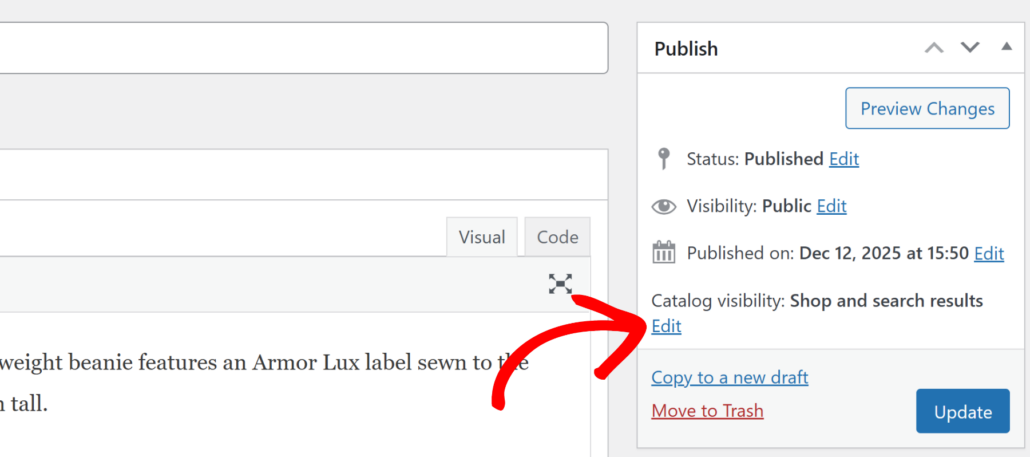
Next, you will see more options appear under Catalog visibility.
Simply change it to one of the mentioned options.
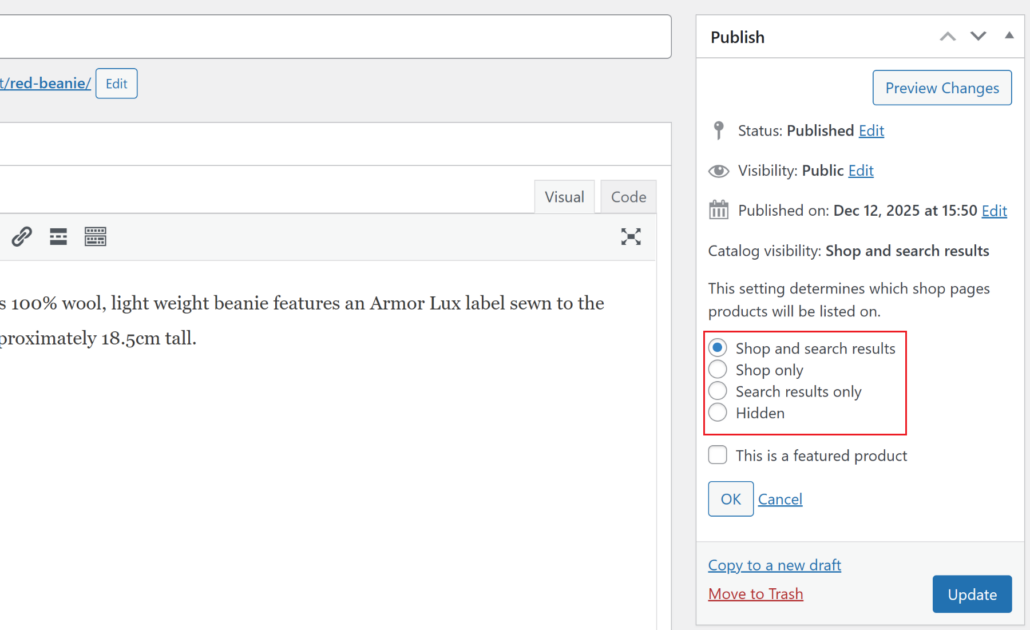
When you’re finished managing the product visibility, click Ok.
Don’t forget to save the changes you’ve made to the product settings by clicking the Update button.
Update Your Permalinks
Sometimes products may not display on the WooCommerce shop page due to a permalinks update error.
It usually happens when you change your WooCommerce theme or install new extensions.
To fix this issue, navigate to Settings » Permalinks in your WordPress dashboard.
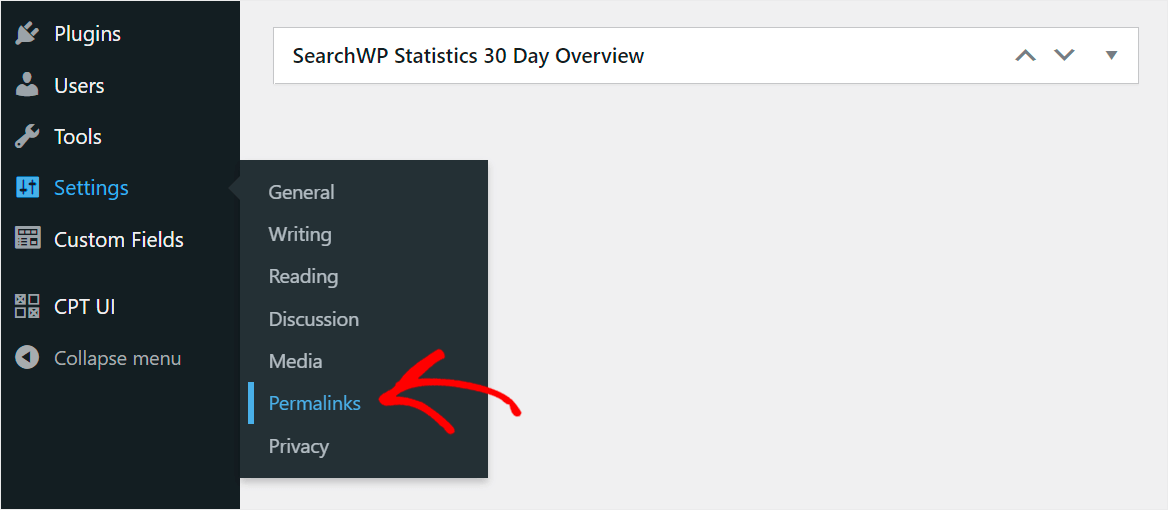
Then, click Save Changes at the bottom of the page to make WordPress update your permalinks.
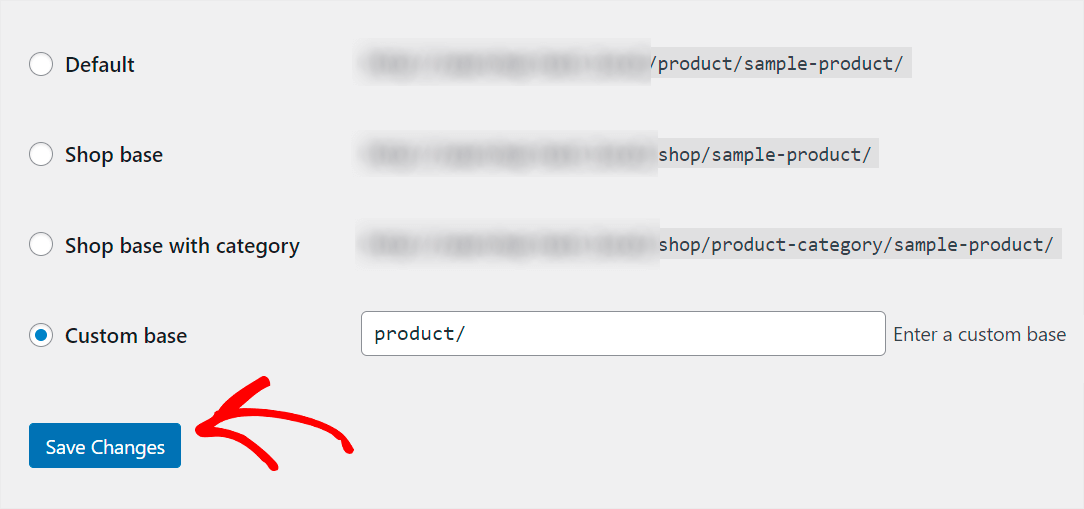
How to Fix WooCommerce Not Showing Products in Search Results
WooCommerce users often confuse the Shop page and the search results on their site.
If your products don’t appear in search results, the problem is most likely related to the WordPress search engine itself.
The thing is, by default, it only considers the product’s title, description, and excerpts when performing a search.
But all other valuable data as product tags, categories, custom fields, and more, stay completely ignored by WordPress.
Thankfully, there is a way to enhance search on your WooCommerce site in just a few clicks by using SearchWP.

SearchWP is the most powerful search plugin for WordPress, trusted by over 50,000 website owners.
Due to its seamless integration with WooCommerce, it allows you to make your products more visible and boost your sales.
Specifically, you can enable search by product SKU, tags, custom fields, categories, and other attributes that can help your customers find the right products faster.
In addition, with SearchWP, you can fully customize how search works in your store.
Here are some other SearchWP features that can help you grow your business:
- Search tracking: Find out what search terms visitors enter on your site and get detailed reports on their search behavior.
- Live autocomplete search: Let your visitors get instant search results with a live search that guesses what they’re looking for.
- Fuzzy search: Enable fuzzy search to help visitors find the right products, even if they misspelled their names.
- Highlight search terms: Make matches more visible in search results to help visitors figure out faster if they’ve found the desired product.
With SearchWP, you can control search engines that you create and customize their settings, add new rules, and more.
For example, you can promote specific products in search results, limit search to WooCommerce products only, and many more.
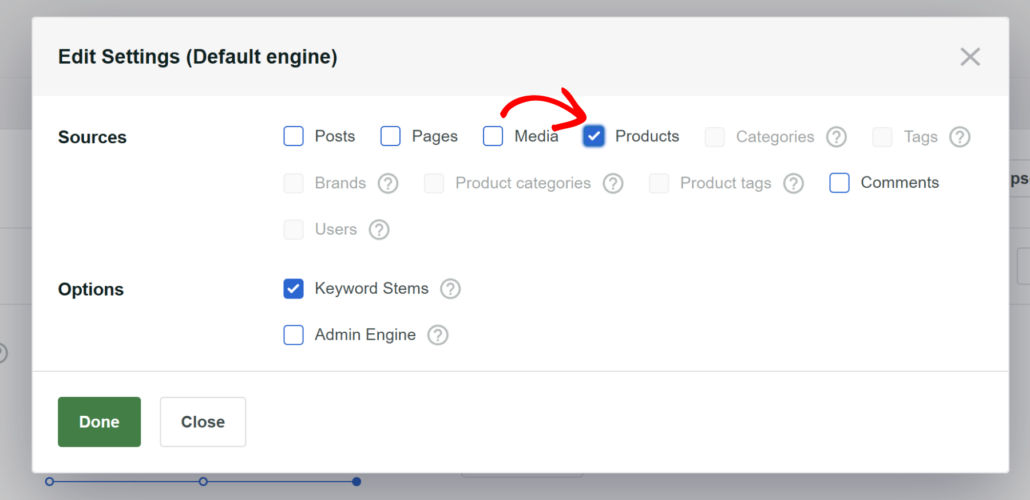
Besides that, you can edit the attributes of your Product source
This helps you include additional information in the search process.
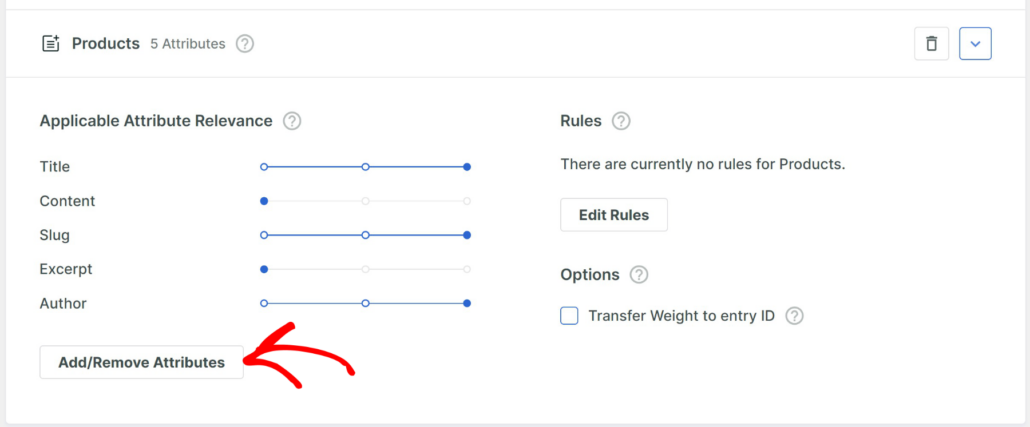
Next, you can select custom fields (color, SKU, size, material) and taxonomies (product tags, categories, type).
SearchWP will also use the title, content, slug, excerpt, and author as attributes for the product sources when performing a search.
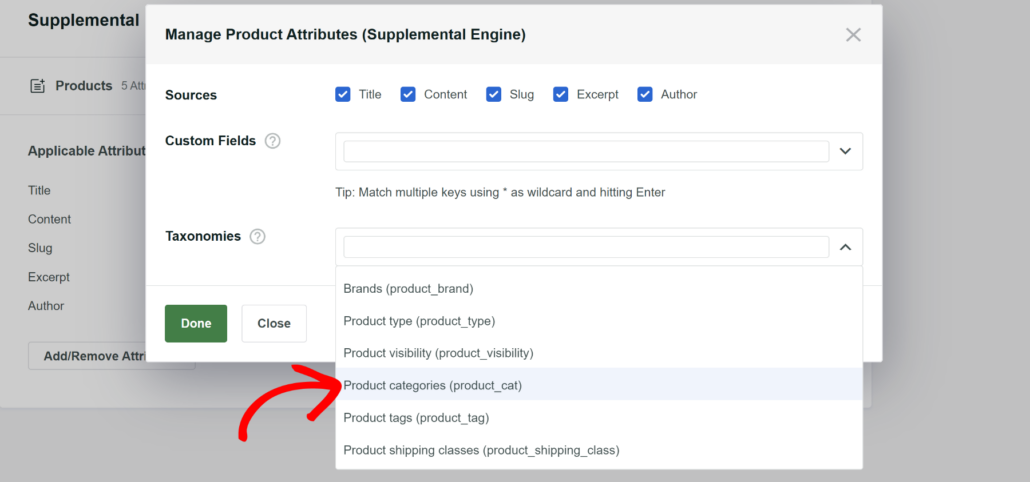
You can learn more by following our guide on how to make a smart WooCommerce product search.
By creating a smart search, you can make the user experience of your customers better, allow them to quickly find what they’re looking for on your site, and boost your sales.
We hope this article helped you learn how to fix WooCommerce shop page not showing products. You may also want to see our guides on how to fix WooCommerce search by SKU not working and how to fix WordPress search not working.
Ready to make your WooCommerce search smarter? You can get started with SearchWP here.






